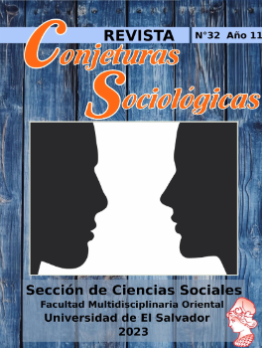Digital Competencies due to the Offices´ Virtualization in the New Digital Society
Keywords:
Digital skills, Virtualization, Digital society, GlobalizationAbstract
The main objective of this article is to show how the Universidad Nacional of Costa Rica though the careers Administración de Oficinas and Educación Comercial has promoted the development of digital skills among students. This evolution responds to the new requirements of social communication, collaborative work, planning, and information management in both public and private offices following the voluntary or mandatory virtualization of organizations. The research, utilizing a mixed-methods approach and a phenomenological perspective, involved the participation of eighteen students of the bachelor's degrees in the mentioned fields. These students were enrolled in the Digital Technologies course at the time of their participation. The study revealed the essential need to develop digital competencies to meet the demands of the employement market, which is increasingly immersed in the virtualization of processes, aligning with the needs of a globalized society
Downloads
References
Angeriz, E. (2019). La educación del siglo XXI. La construcción de competencias en estudiantes y los procesos de apropiación de la tecnología en sus contextos. En A. L. Rivoir y M.ª J. Morales (Coords.), Tecnologías digitales: miradas críticas de la apropiación en América Latina (pp. 87-102). CLACSO. https://apro piaciondetecnologias.com/wp-content/ uploads/2019/12/Tecnologias-digitales.pdf
Castillo, M & Umaña, R. (2020). Modelo para la preservación de documentos digitales. Revista Del Archivo Nacional, 83(1-12), 129–182. https://www.dgan.go.cr/RAN/index.php/RAN/article/view/453
Escuela de Secretariado Profesional. (2022). Programa de curso Tecnologías Digitales. Universidad Nacional.
González, A., Machado, J., Talavera, M., & Sevilla, A. (2020). Influencia de las TIC en el proceso administrativo. Revista Científica De FAREM-Estelí, (33), 52–63. https://doi.org/10.5377/farem.v0i33.9608
Núñez, J. (2020). El rol de las tecnologías de información y comunicación en las MiPyMEs. Aproximación metodológica. Daena: International journal of good conscience, 15(3), 1-13.
Mell, P. y Grance, T. (2011). The NIST Definition of Cloud Computing: Recommendations of de National Institute of Standards and Technology, National Institute of Standards and Technology, 800-145. http://faculty.winthrop.edu/domanm/csci411/Handouts/NIST.pdf
Naciones Unidas (2015). Objetivos de desarrollo sostenible. https://www.un.org/sustainabledevelopment/es/education/
Prensky, M. (2011). Enseñar a nativos digitales. Estados Unidos: SM Ediciones.
Quintero, J. (2020). Las Tecnologías de la Información y las Comunicaciones como apoyo a las actividades internacionales y al aprendizaje a distancia en las universidades. Universidad y Sociedad, 12(1), 366-373.
Quiroz, J. & Lázaro-Cantabrana, J. (2020). La competencia digital de la ciudadanía, una necesidad creciente en una sociedad digitalizada. Edutec. Revista Electrónica De Tecnología Educativa, (73), 37-50. https://doi.org/10.21556/edutec.2020.73.1743
Roca, A. P. (2020). Sociedad de la información, sociedad digital, sociedad de control. Inguruak. Revista Vasca de Sociología y Ciencia Política, (68).
Rueda Ñopo, M. I. (2021). El uso del internet en los trabajos colaborativos de investigación formativa en una universidad privada. https://repositorio.ucv.edu.pe/bitstream/handle/20.500.12692/58400/Rueda_%c3%91MI-SD.pdf?sequence=1&isAllowed=y
Selman, H. (2017). Marketing digital. Ibukku. https://books.google.es/books?hl=es&lr=&id=kR3EDgAAQBAJ&oi=fnd&pg=PT10&dq=que+es+marketing+digital&ots=KIpHHx54rU&sig=U9WpjCtTxQoOm37ykhF7rtTpipY#v=onepage&q=que%20es%20marketing%20digital&f=false
Downloads
Published
Issue
Section
License

This work is licensed under a Creative Commons Attribution-NonCommercial 4.0 International License.
Los autores continúan como propietarios de sus trabajos, cediendo de manera no exclusiva los derechos de difusión a la Revista Conjeturas Sociológicas bajo los estándares de la Licencia Creative Commons Atribución No Comercial 4.0 Internacional (CC BY NC 4.0).





